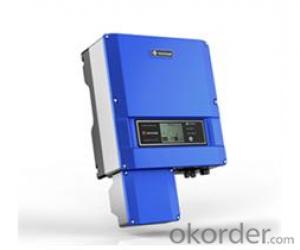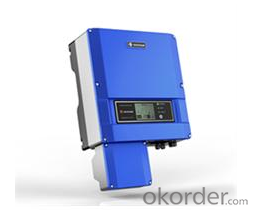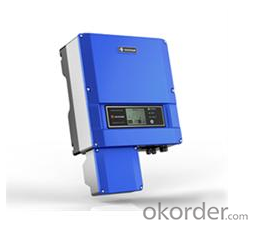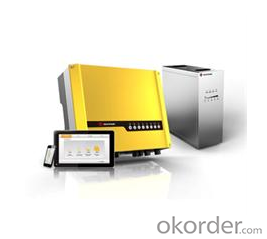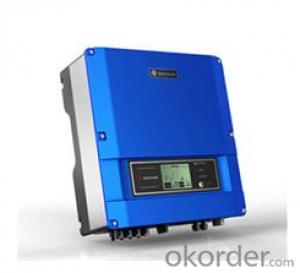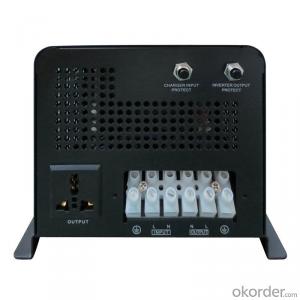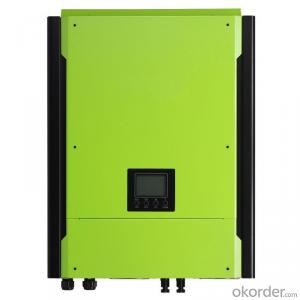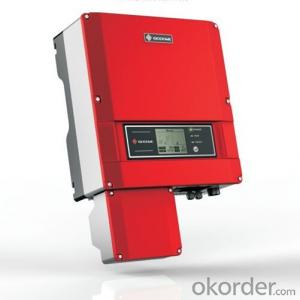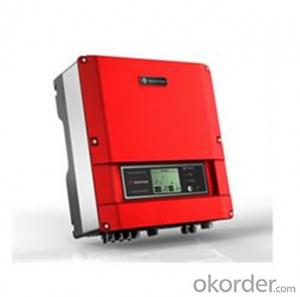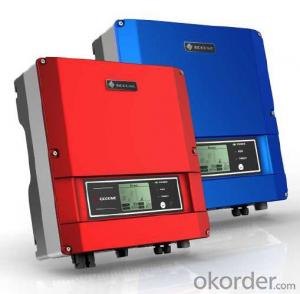High Frequency Isolated Solar Inverter Charger GW3000/3600/4200D-DI
- Loading Port:
- Shanghai
- Payment Terms:
- TT OR LC
- Min Order Qty:
- 10 unit
- Supply Capability:
- 100 unit/month
OKorder Service Pledge
OKorder Financial Service
You Might Also Like
GW3000/3600/4200D-DI (High Frequency Isolated)
GoodWe DI series inverter is the new on-grid PV inverter which integrated with most advanced technology, come with 10 years warranty, and are designed to meet the new IEE1547 requirements for the North American market. Also it’s suitable for thick-film modules. Easy installation and simple operation make them ideal for residential and small-to-medium commercial applications. GoodWe inverters, with ever-increasing efficiency and high stability, could ensure you better overall performance of solar power systems and shorter payback periods.
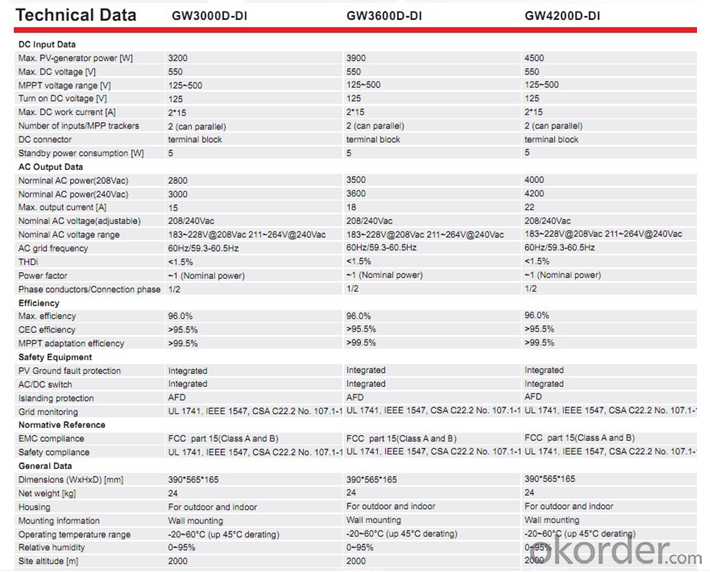
- Q: How does a solar inverter handle power surges or fluctuations?
- A solar inverter handles power surges or fluctuations by using advanced circuitry and protective measures. It typically includes surge protection devices that can absorb excessive voltage spikes, diverting them away from the system. Additionally, the inverter continuously monitors the grid voltage and adjusts its own output accordingly to maintain a stable and safe supply of electricity.
- Q: How does a solar inverter handle voltage drop?
- A solar inverter handles voltage drop by continuously monitoring the voltage levels from the solar panels. If it detects a drop in voltage, it adjusts its internal voltage regulation mechanisms to maintain a stable output voltage. This ensures that the inverter can efficiently convert the incoming DC power from the solar panels into usable AC power without any significant loss or disruption caused by voltage fluctuations.
- Q: How efficient are solar inverters?
- Solar inverters are highly efficient, typically converting around 95% to 98% of the direct current (DC) power generated by solar panels into usable alternating current (AC) electricity.
- Q: Can a solar inverter be used with a solar water pumping system?
- Yes, a solar inverter can be used with a solar water pumping system.
- Q: What is the difference between a central inverter and a string inverter?
- A central inverter is a single large inverter that is responsible for converting the DC power generated by multiple solar panels into AC power for use in a building or to be fed back into the grid. On the other hand, a string inverter is a smaller inverter that is connected to a string of solar panels, typically between 6 to 20 panels, and converts the DC power generated by that specific string into AC power. The main difference is that a central inverter is used for larger solar installations, while string inverters are more commonly used in smaller residential or commercial installations.
- Q: Are solar inverters weatherproof?
- Yes, solar inverters are weatherproof. They are designed to withstand various weather conditions including rain, snow, and extreme temperatures. The enclosures of solar inverters are typically made of durable materials that provide protection against moisture and other environmental factors.
- Q: How does a solar inverter affect the overall system efficiency at different temperatures?
- A solar inverter can affect the overall system efficiency at different temperatures by adjusting its operations to optimize performance. At higher temperatures, the efficiency of the inverter may decrease due to increased internal losses and reduced power output. To mitigate this, modern inverters utilize advanced technologies such as maximum power point tracking (MPPT) algorithms to adapt to the changing temperature conditions. These algorithms adjust the operating parameters of the inverter to maximize energy production by maintaining the optimal voltage and current levels. By dynamically responding to temperature changes, a solar inverter can help maintain higher overall system efficiency across a range of temperatures.
- Q: Can a solar inverter be used with a grid-tied system and a battery backup?
- Yes, a solar inverter can be used with a grid-tied system and a battery backup. In this setup, the solar inverter will convert the DC power generated by the solar panels into AC power, which can be used to power your home or business. The excess power can be fed back into the grid, earning credits or reducing your electricity bill. Additionally, a battery backup system can be connected to the solar inverter, allowing the excess solar energy to be stored in batteries for later use during power outages or when the grid is not available.
- Q: Can a solar inverter be used for both residential and commercial applications?
- Yes, a solar inverter can be used for both residential and commercial applications. Solar inverters are designed to convert the DC electricity generated by solar panels into AC electricity that can be used to power homes or businesses. They can be scaled to accommodate the specific energy needs of residential or commercial properties, making them suitable for various applications.
- Q: Can a solar inverter be used with concentrated photovoltaic systems?
- Yes, a solar inverter can be used with concentrated photovoltaic (CPV) systems. However, the inverter used for CPV systems may differ from the ones used for traditional photovoltaic systems. CPV systems use lenses or mirrors to concentrate sunlight onto highly efficient solar cells, which generate DC power. This DC power is converted into AC power by the inverter, enabling it to be used for various applications or fed into the grid. Therefore, a specialized inverter designed to handle the unique characteristics and high levels of DC power output of CPV systems is required.
Send your message to us
High Frequency Isolated Solar Inverter Charger GW3000/3600/4200D-DI
- Loading Port:
- Shanghai
- Payment Terms:
- TT OR LC
- Min Order Qty:
- 10 unit
- Supply Capability:
- 100 unit/month
OKorder Service Pledge
OKorder Financial Service
Similar products
Hot products
Hot Searches
Related keywords
